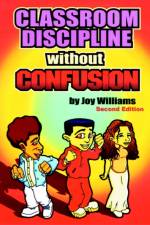av Joy Williams
189,-
ExcerptIn today's society, we have created a generation of children that have been empowered to know their rights. They have been informed through television, radio, newspapers, magazines and the Internet that they are not only children, but also smaller human beings that have certain privileges. Society may have meant it for the good of the children, but the children have used and abused these rights. We have been very careful not to hurt the children's feelings, label them, ignore them, disrespect them, or expect too much from them. With this mindset, we have made these children "mini gods"! The children now feel they can do any and everything they please and, their rights will protect them.According to Webster, confusion means disorder. This bewilderment is a prevalent term that exists in many school settings. When confusion enters into the learning environment, it is difficult to teach the required subject matter. Classroom Discipline without Confusion will place order and clarity in your classroom. Simple techniques and strategies will allow you to get control and make teaching enjoyable, successful and fun!Confusion and chaos have entered like thieves in the night to rob our classrooms of dignity and respect. We are losing some of our finest teachers, all at the expense of enforcing the rights of the children. Fighting, weapon possession, disobedience towards school rules, property and authority figures seem to be the order of the day. Society seems to be in limbo, shock and it does not know what to do with children that are now out of control. Many people fail to realize many schools have disruptive children. Society wants the schools to teach all students regardless of what problems they have or from where they come. There is a scarcity of books on how to reach and teach these children many of whom do not want to be taught.Classroom Discipline without Confusion addresses these issues and concerns. It takes a realistic look at the children that are growing up in today's society and tries to address their needs and learning patterns. It is filled with everyday survival techniques that can be used effectively in many classroom settings. The techniques given are not the conventional methods that most people use. They are creative strategies designed to teach the hard to reach. They are methods that sap the confusion from the environment, so you can quickly access any problems.









